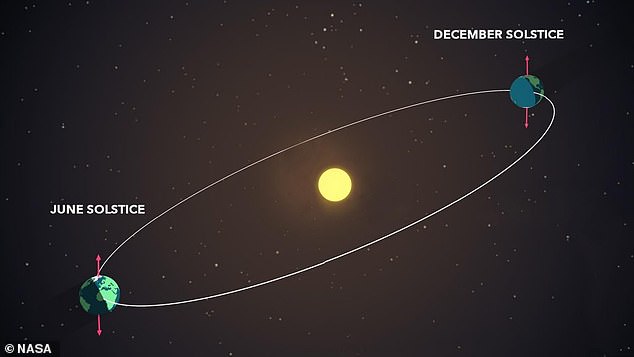Winter Solstice is tomorrow, marking the shortest day of year with just 7 hours and 49 minutes of daylight
- The winter solstice will officially occur at 03:27 GMT tomorrow morning
- There will be only seven hours, 49 minutes and 42 seconds of daylight in London
If you're tired of it getting dark early in the UK, you'll be happy to hear that the dark days are almost over.
We have finally reached the shortest day of the year, the winter solstice.
The winter solstice will officially occur at 03:27 GMT tomorrow, when the sun will be lowest in the sky.
Tomorrow, there will be only seven hours, 49 minutes and 42 seconds of daylight in London.
The Royal Museums of Greenwich explained: “This means that the length of the day during the winter solstice is 8 hours, which is 49 minutes shorter than the summer solstice.”
If you're tired of it getting dark early in the UK, you'll be happy to hear that the dark days are almost over. We have finally reached the shortest day of the year, the winter solstice
The winter solstice occurs in December every year and is a 24-hour period with the fewest daylight hours of the year in the Northern Hemisphere.
Since the Earth is tilted by 23.4 degrees on its axis, the arc in which the Sun moves during the day will rise and fall throughout the year as the Earth's pole points either toward or away from the Sun.
The winter solstice occurs at the lowest point in the Northern Hemisphere, when the sun is at its lowest level in the sky.
Royal Museums Greenwich said: “At this time, Earth’s north pole points away from the sun (which is why it is colder in the northern hemisphere).”
“For people who live in the Southern Hemisphere, the South Pole points toward the sun, making it summer ‘down there.’”

The winter solstice will officially occur at 03:27 GMT tomorrow, when the sun will be lowest in the sky
| year | Winter begins | End of winter |
|---|---|---|
| 2023 | December 22 | March 20 |
| 2024 | December 21 | March 20 |
| 2025 | December 21 | March 20 |
The exact moment of the solstice will occur at 03:27 GMT in the UK, although most people see the entire day as the winter solstice.
The good news is that the day after tomorrow, the days will start getting longer and the nights shorter.
The word “solstice” comes from the Latin word “solstitium,” which means “the sun standing still.”
On the winter solstice, the apparent movement of the sun reaches its southernmost point, before changing its direction.
While many people see the winter solstice as the beginning of winter, others believe we have already entered winter.
This is because there are actually two definitions of the beginning of the season – meteorological and astronomical winter.
Astronomical winter sees the winter solstice as the beginning of winter, while meteorological winter uses December 1.
“At the Met Office, we often use a meteorological definition of seasons,” the Met Office explained.
According to the meteorological calendar, the first day of winter is always December 1; Ends on 28 (or 29 during a leap year) February.'
(Tags for translation)dailymail
